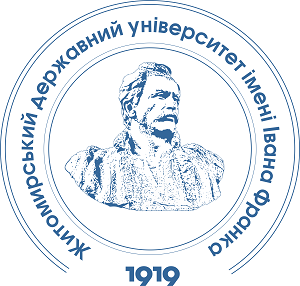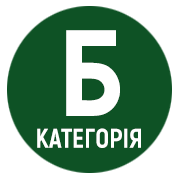PSYCHOLOGICAL PREREQUISITES FOR THE EFFICIENCY OF GROUP PROBLEM SOLVING
DOI:
https://doi.org/10.32782/psy-2025-5-5Keywords:
task, group, team, problem solving, reflexivity, understandingAbstract
The relevance of the ability of group participants to creative interaction as an adaptive function is emphasized. The concept of group reflexivity as intragroup interaction aimed at self-analysis is analyzed. The main approaches to the study of group reflexivity are considered, which consist in its interpretation as: a factor of the effectiveness of joint activity; the group’s ability to learn; a set of techniques and methods of group work that allow analyzing common experience and managing organizational knowledge; the metacognitive experience accumulated by the team, the level of collective “mind”. The study of group reflection from the standpoint of the culturalhistorical approach and the theory of symbolic resources is considered promising. An analysis of the differences between the concepts of “collective” and “group” is presented. The results of solving experimental problems by groups with different numbers of participants are considered. It is established that the best results when performing the most complex tasks were obtained in groups with a number of 4–8 people. Three ways of distributing work roles in a group are analyzed, their variants and subvariants are substantiated. The importance of solving the problem of ensuring a favorable psychological climate in the team, eliminating the determinants of conflict situations is emphasized. The dependence of the psychological readiness of the production team to solve the current problem on the level of demands of its participants is discussed. The features of the implementation of choice matrices are considered for the purpose of proper and balanced adjustment, formation and development of interpersonal relationships in the team in order to raise the level of its creative potential. The influence of the use of different forms of coding of work information on the level of mutual understanding in the process of collective creative activity is shown. The differences in the processes of individual and collective solving of creative problems are considered.
References
Моляко В. О. Творча конструктологія (пролегомени). Київ : Освіта України, 2007. 388 с.
Brandon D. P., Hollingshead A. B. Transactive memory systems in organizations: Matching tasks, expertise, and people. Organization Science. 2004. 15(6). P. 633–644.
Cinnirella M. Exploring temporal aspects of social identity: the concept of possible social identities. European Journal of Social Psychology. 1998. Vol. 28. P. 227–248.
De Dreu C. K. W. Team innovation and team effectiveness: The importance of minority dissent and reflexivity. European Journal of Work and Organizational Psychology. 2002. Vol. 11(3). P. 285–298.
Gillesple A. The Social Basis of Self-Reflection. The Cambridge Handbook of Sociocultural Psychology / Ed. by J. Valsiner and A. Rosa. Cambridge : University Press, 2007. P. 678–691.
Hoegl M., Parboteeah K. P. Team reflexivity in innovative projects. R and D Management. 2006. Vol. 36(2). P. 113–125.
Kerth N. L. Project Retrospectives: A Handbook for Team Reviews. New York : Dorset House Publishing, 2001. 8. Kolb D. Experimental learning. Englewood Cliffs. New York : Prentice-Hall, 1984.
Larsen D. Agile Retrospectives: Making Good Teams Great. New York : Pragmatic Bookshelf, 2006.
Schippers M. C., Den Hartog D. N., Koopman P. L. Reflexivity in Teams: A Measure and Correlates. Applied Psychology: An International Review. 2007. Vol. 56(2). P. 189–211.
Weick K. E., Roberts K. H. Collective Mind in Organizations: Heedful Interrelating on Flight Decks. Administrative Science Quarterly. 1993. Vol. 38(3). P. 357–331.
West M. A. Reflexivity and work group effectiveness: A conceptual integration. Handbook of work group psychology / Ed. by M. A. West. Chichester : Wiley, 1996. P. 555–579.






